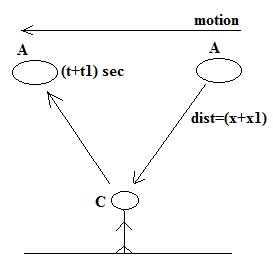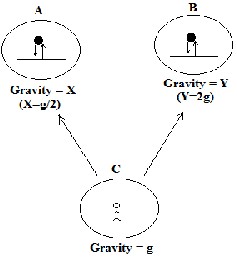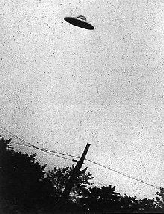
Fig 1(a): Einstein‟s Relativity (part 1)
International Journal of Scientific & Engineering Research, Volume 5, Issue 7, July-2014
ISSN 2229-5518
1087
The Scientific Conceptualization of Time dilation
Mr.Vijay A. Kanade
Abstract— Time dilation is an actual difference of elapsed time between two events as measured by observers either moving relative to each other or differently situated from gravitational masses.The paper deals with the scientific conceptualization of Time dilation in a broader sense. The concept presented focuses on the apparent reason behind the time differences between various planets. Time dilation also encompasses the age old mystery of life in the outer space and the time constraints that they follow which ought to differ with the time standards followed by our universe.
Index Terms—Time dilation, Theory of Relativity, Aliens, Gravity, outer space, UFO’s.
—————————— ——————————
When speaking of time perhaps the best place to start is at the beginning with a definition of time. What is time? What is it that clocks are measuring? They seem to measure some unseen medium that continues on with a constant and never-stopping force. In fact, time is often thought of as a river that flows in one direction and slows for no one, always sweeping everything and everyone along with it.
We certainly experience the passing of time. We are born and live our lives feeling as though we are constantly being pushed and pulled by this unseen phenomenon. So then what is time? Time is an observed phenomenon, by means of which human beings sense and record changes in the environment and in the universe. A literal definition is elusive. Time has been called an illusion, a dimension, a smooth-flowing conti- nuum, and an expression of separation among events that oc- cur in the same physical location.
Time is a practical convenience in modern life. Numerous standards have been set up, allowing people to coordinate events and, in general, keep their lives running smoothly. The earth has been divided into so-called time zones that reflect the fact that high noon occurs at different times at different places on the planet. All of these time zones are referenced to the time at the longitude of Greenwich, England.
Time theory dates back to the revolutionary theory put forth by Sir Albert Einstein in 1905 widely known as the “Theory of Relativity”. Let‟s traverse through this theory of time.
The special theory of relativity was based on two main post- ulates: first, that the speed of light is constant for all observers; and second, that observers moving at constant speeds should be subject to the same physical laws [6]. Following this logic, Einstein theorized that time must change according to the speed of a moving object relative to the frame of reference of an observer. Scientists have tested this theory through experi- mentation - proving, for example, that an atomic clock ticks
more slowly when traveling at a high speed than it does when it is not moving. The essence of Einstein's paper was that both space and time are relative (rather than absolute), which was said to hold true in a special case, the absence of a gravitational field. Relativity was a stunning concept at the time; and the equation E=mc2, which implied that matter and energy were equivalent and, more specifically, that a single particle of mat- ter could be converted into a huge quantity of energy [4],[5]. However, since the special theory of relativity only held true in the absence of a gravitational field, Einstein worked on the general theory of relativity i.e. relativity in the presence of gravity [1],[2]. Time dilation is explained in this theory of gen- eral relativity as the existent time difference of the elapsed time between two events as checked by the observers [3]. This theory is elaborated in a wider sense in the next section.

Fig 1(a): Einstein‟s Relativity (part 1)
IJSER © 2014
International Journal of Scientific & Engineering Research Volume 5, Issue 7, July-2014
ISSN 2229-5518
1088
As per Einstein‟s theory of relativity, consider a person is in the spaceship A that is moving in the direction of the arrow. Consider an observer C located on the surface of the earth. Now, the person in spaceship A wishes to find out the speed of light. Thus he fires a beam of light from the spaceship at the mirror attached to its own body. So the distance covered by the beam is „x‟ for its journey from A to a. subsequently the beam after reflection covers the same distance of „x‟ from point a to A. Thus the total distance covered by the beam of light is
„2x‟. So the speed of light can be calculated as below:
Thus,
Now in part 2, let us examine the above case from the observer C‟s perspective. When the spaceship A fires the beam, it sub- sequently moves along the straight path. During this journey, the beam of light covers the distance=(x+x1) in the „V‟ shaped form. Thus in this case, the distance increases by x1 amount as the beam of light covers the „V‟ shaped pattern from the mo- ment it is fired. Now, as the distance travelled by the beam increases, the time taken by the beam apparently increases by some amount![]()
Thus,![]()
![]()
From the above equation we infer,
(1)
Therefore,![]()
(3)
Now,
For the person in spaceship A, the time taken by beam of light
to cover the distance „2x‟ is,
![]() (2)
(2)
Thus here from the perspective of the person in the spaceship, the beam of light covers the distance of „2x‟ in a straight path in time=„t seconds‟.

Fig 1(b): Einstein‟s Relativity (part 2)
————————————————
Mr. Vijay A. Kanade is currently working as a research student at Raman
Research Institute, Bangalore, India, E-mail:vijaykanade55@gmail.com
In part 2, the time taken by the beam is longer than in part 1. Since the speed of light is same for all observers, from C‟s perspective it takes longer amount of time for the beam of light to return to the spaceship.
Thus, from the part 1 and part two we conclude that the clock in the spaceship runs slower than the clock at the ob- server C as seen from equation (ii) and (iii).
The above experiment was by taking into consideration the principle of perspective as proved by Einstein‟s theory of rela- tivity. The experiment holds true if it is seen independently
Now, let us consider the other deciding factor „gravity‟ that influences the „time theory‟ in a substantial way.
Let‟s take an example:
IJSER © 2014
http://www.ijser.org
Fig 2: Relation between time & gravity.
International Journal of Scientific & Engineering Research Volume 5, Issue 7, July-2014
ISSN 2229-5518
1089
Consider the planets A, B, and C located as shown in the above figure 2. The planet A has the gravity=‟X‟ units. The planet B has the gravity= „Y‟ units, and the planet C has gravi- ty=‟g‟ units. Now assume that the ball is bouncing at planet A
& B simultaneously and the observer on the planet C is ob- serving the activity of the bouncing ball.
Case (1): Let‟s assume that the gravity of the above 3 planets follow the condition mentioned below:
If ![]()
Then,
For planet A:
From the perspective of the observer at C, the ball bouncing at
the planet A will bounce at a slower pace depending on the
gravity of the respective planets. It simply implies that the
clock at planet A will run slower to the clock on planet C.
For planet B:
From the perspective of the observer at C, the ball bouncing at
the planet B will bounce at a faster pace depending on the
gravity of planet B. It means that the clock at planet B will run
faster to the clock on planet C.
In general if we observe the planets individually, then each planet is running smoothly neglecting the time standards of the other planets as the time zones followed by them are ex- clusive and independent of the time zones of the other planets. Thus as per their own perspective, these planets function or respond to their time standards in an effective manner keep- ing aside the time dilation factor.
From the above observation, we conclude that along with the perspective time heavily depends on gravity. As the gravity increases, the time zones i.e. clocks run faster or slower from others perspective. But at the same time, the observers resid- ing in a particular time zone do not realize the time differences as they work efficiently in their own time zone which is a re- sult of their own gravity. Therefore, along with the perspec- tive, gravity is the factor that is responsible for its own time zones.
For example,
The gravity on moon is 1/6th of the gravity g on earth, thus the
corresponding time on the planet moon runs at a much slower
rate than that on earth. This implies that the clock on the
moons ticks slower to the clock on the earth by some amount
due to difference in the gravity of the two bodies. Thus we establish the following relation based on the above observa-
tions,
Moving into the outer space, there is the difference in the standards of time. We live on the inhabitable planet called “Earth”. At the same time we cannot rule out the fact that life doesn‟t exist on the other planets because the extent of the universe itself isn‟t defined today. We need to analyze the time bound standards followed by other planets keeping aside the time cycle on the earth. Examining this will ensure the ab- straction of “universal time standards”, rather than just earth‟s time standards, which is pretty clear at the moment.
Let‟s explore the scenario. To begin with, we will study the
existence of life in the outer space. Certain evidences of the UFO‟s have been noted since a very long time. Let‟s glance through certain manifestations related to the UFO‟s. On 15
March 1951 at 10.20 am. In New Delhi 25 members of a flying
club saw a cigar-shaped object in the sky which was long as
about one hundred foot. The UFO hovered and then vanished
from sight. On 15 September 1954 a flying saucer was seen in
the afternoon by about 800 people in three villages (Kadori,
Borsa and Mangalda) in Manbhum district of Bihar [7].
Mr.Ijapada Chatterjee, manager of a mica mine, told The
Times of India that the UFO was about 12 feet in diameter and
grey in color. The object descended to an altitude of about 500
feet, hovered for a few minutes and then soared upwards at an
incredible speed, causing a tremendous blow of wind. This
continued in the years to follow that include 1991, 2005, 2006,
and 2007. The most recent one refers to 2014. In Kolhapur date
- 6 April 2014 two boys spotted a cigar shaped UFO. On the
second day they spotted a red colored UFO. Another such
evidence was seen on 20 July 2014, when one of the boys in
Kolhapur saw a big hole in the sky which was neither the
clouds nor the sun. There was just a bright white hole [7].
However, in popular meaning, "Unidentified Flying Object" has come to mean "Alien Spaceship" by default. Identifying
UFOs as flying saucers negates the "U" part of UFO, of course. So far, no verified alien machinery has been found on Earth. We have, however, left examples of alien machinery on the Moon, Mars, and Venus.
![]() (4)
(4)

Fig 3: An alleged UFO in New Jersey, taken on July 31,
1952(Wikipedia) [7]
Now lets us assume that aliens do exist and that‟s the reason
IJSER © 2014
International Journal of Scientific & Engineering Research Volume 5, Issue 7, July-2014
ISSN 2229-5518
1090
maybe the humans have been spotting UFO‟s all the while. Going a bit deep, the time standards on which the aliens operate can be a bit different. Conceivably the unit of time shared by these aliens are variant to humans on a larger extent. Merely, 1 sec for the humans can be equal to 1 year for the aliens. Analo- gously 365 days of a year (for humans) can appear to them (aliens) as 1 sec which maybe the result because of the differnces in the respective gravitational fields of the planets to which they belong; and that is why maybe whenever UFO‟s have been sited, it has just been for a second or so and then the UFO‟s have vanished within a split second. If I summarize this, it simply means that 24hrs for humans can be equivalent to 1 sec for an alien body. This perhaps implies that the time theory is different for every planet in the universe that will ever be depending on their individual gravity factor. In a nutshell the standards of time that are applicable to every single particle in the universe cannot be revealed by the humans as it is a function not just of perspective but gravity as well.
The present study and analysis of time dilation brings into picture the substantial role of gravity. It was previously stu- died that time factor and gravity are related in some manner but the effective relation between the two entities was a puz- zle. As per the thorough study and observation, it gives a quality insight on the role of gravity in relation to time. It es- tablishes the time protocol for life in the outer space. It can be apparently seen that life in the outer space exists and we can- not rule away the fact that aliens exists. Thus, time dila- tion being the actual difference of elapsed time between two events as measured by observers is the function of „gravi- ty‟ along with the „perspective‟ factor of the observers (theory of relativity).
I am thankful to Er. Sourabh Kumbhar for his contribution related to the above paper. I wish to thank the faculty of Ra- man Research Institute, Bangalore for their support through- out my research work. I am very much thankful to my dad, for his unrelenting support and guidance.
.
[1] Introduction to general relativity by Gerard 't Hooft, Institute for Theoretical Physics , Utrecht University and Spinoza Institute, Postbox 80.195, 3508 TD Utrecht, the Netherlands
[2] A book on „A first course in General Realtivity’, by Bernard Schutz
[3] http://en.wikipedia.org/wiki/Time_dilation
[4] The special theory of relativity, Lecture Notes prepared by J D Cresser, Department of Physics, Macquarie University
[5] Special Relativity, David W. Hogg. School of Natural Sciences, Insti- tute for Advanced Study, Olden Lane, Princeton NJ 08540
[6] Einstein’s Theory of Special Relativity Made Relatively Simple, by Chris-
topher P. Benton, PhD
[7] http://en.wikipedia.org/wiki/UFO_sightings_in_India
IJSER © 2014